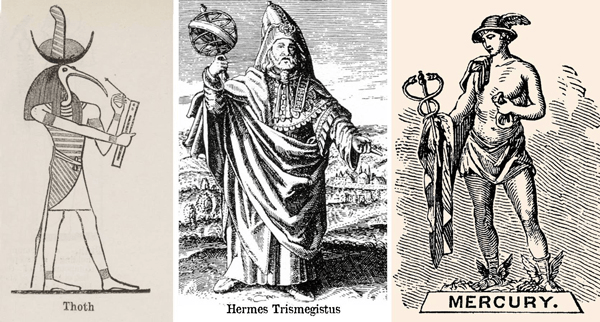The concept of Hermes Trismegistus emerged during the Hellenistic period, a time of cultural exchange and intellectual ferment. As Greek and Egyptian cultures intertwined, their respective pantheons merged, giving rise to syncretic deities. Hermes, the Greek god of communication, divination, and magic, found his Egyptian counterpart in Thoth, the divine scribe,
diviner, and creator of knowledge.
The fusion of these two deities resulted in Hermes Trismegistus, a figure embodying the intellectual and spiritual aspirations of the Hellenistic world. He was venerated as a sage, a philosopher, and a master of secret knowledge, believed to have possessed divine wisdom and the ability to unlock the mysteries of the universe.


